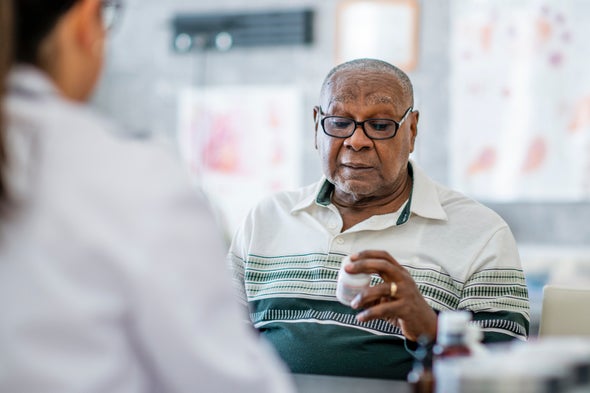The pandemic gives an opportunity to turn the tide for our nation’s most vulnerable communities

To those of us who have dedicated our careers to dismantling these inequities, the deep impact of COVID-19 on communities of color was not a surprise. Throughout our country’s history, the same disadvantaged groups suffer the most during natural disasters, wars, pandemics and other major crises. And, when it comes to pandemics, we have never been successful in taking what we’ve learned to ensure resources reach those in greatest need. So, how do we achieve an equitable, proactive response when there’s not an equitable foundation, blueprint or clear starting point?
Early on in the pandemic, the public health community realized that data availability—or the lack thereof—was a key problem. Although there have historically been challenges in data collection and reporting in these communities, the COVID-19 pandemic provides an opportunity to turn the tide for our most vulnerable. As a nation, we must prioritize and invest in the role of data and technology in closing the gap of disparities in outcomes and in driving equitable access to testing, vaccines and delivery of health services.
Since its inception, the Satcher Health Leadership Institute (SHLI) at Morehouse School of Medicine in Atlanta has been a trailblazer in the health equity space. As we began exploring ways to overcome the data problem, we partnered with the CDC Foundation to bring diverse leaders to the table to form the Health Equity Task Force. We then invited Google.org, Gilead Sciences and the Annie E. Casey Foundation to the table to help us understand what health equity data are already being collected and to identify the data gaps that currently exist.
Through this cross-sector collaborative process, we learned that if we can collect and clearly present the data, we can provide the basis for driving the response toward the areas in most need. The Health Equity Tracker Project was created as a way to do just that. During the last eight months, a team of Google.org fellows, including Google software engineers, product managers, UX researchers and designers, data analysts and more have been working with SHLI to identify and analyze quality public data sources with the goal of creating an easy-to-use, public facing data platform that displays and contextualizes health disparities communities of color face throughout the U.S.
This Health Equity Tracker will map data on the trajectory of COVID-19 cases, hospitalizations, deaths and vaccinations across the U.S., including its territories, broken down by race, ethnicity, gender, socioeconomic status and other critical factors down to the county level, where available. The data, in turn, will help policy makers, health care executives and business leaders better understand how to ensure disproportionately affected communities receive the targeted resources and support they need, such as the creation of culturally relevant resources for community-based organizations to help build confidence and bolster equitable access to information related to COVID-19 vaccines, to battle the virus and close racial gaps.
But the Health Equity Tracker Project is just one way in which data and technology are helping communities of color hardest hit by COVID-19. We now know enough to know there’s still more to be done.
We want to issue a call-to-action across all sectors—public, private, academic—to come to the table. We implore you to zoom out on your organization to look at how you’re using technology to reach your target audience, and how you might leverage those data and insights to help solve one of the most pressing humanitarian issues of our time. Through our work building the Health Equity Tracker, we continue to find significant gaps in race and ethnicity case data, and until we have the full picture, we won’t be able to truly understand and address the disparities in the COVID-19 pandemic in the U.S. Contact your local, state or federal representatives to advocate for centralized, comprehensive reporting on COVID-19 cases, hospitalizations, deaths and vaccines at the county level.
A national strategy, ongoing and substantial investments, diverse working groups and federal policies are also necessary to deepen the impact of the important work we’ve started. If we harness the power of data and technology to address health inequities, building a transformative and inclusive response to COVID-19 is absolutely possible.
ABOUT THE AUTHOR(S)
Daniel E. Dawes
Daniel E. Dawes, J.D., is the executive director of the Satcher Health Leadership Institute at Morehouse School of Medicine, and author of The Political Determinants of Health.
No comments:
Post a Comment